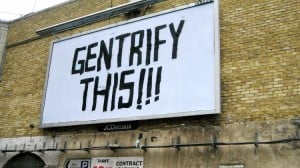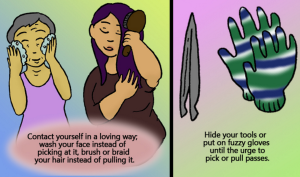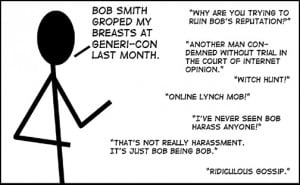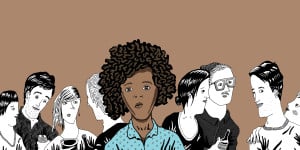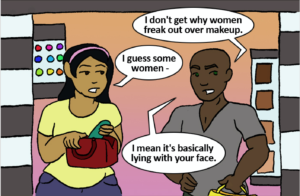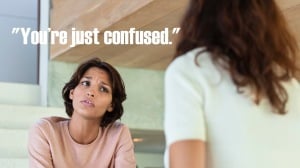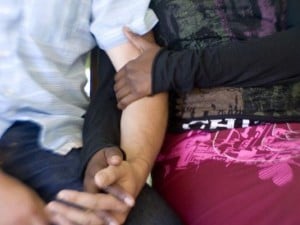
Source: USA Today
I hear it all too often: “I’m not racist, but I just wouldn’t date [insert race/ethnicity].”
If you have to start a sentence with a clarification that you’re not racist, that’s a pretty good indicator that you need to reevaluate whatever you’re about to say.
Type vs. Generalization
Before I spark a litany of impassioned defenses of your dating history, I want to reassure you that I’m not saying that all preferences are inherently biased and oppressive. It’s okay to have a type.
However, the most troublesome aspect of racial preferences lies in their exclusionary nature and heavy generalizations.
It’s totally fine to acknowledge that you’re more attracted to certain traits, but it’s a whole different ballgame to use preferences in the negative.
By stating that you wouldn’t date a certain group, you are essentially claiming that their superficial qualities would make it impossible for you to form an emotional connection – which is, let’s face it, prejudice.
Take a fairly basic example:
You’re into redheads. A few of your past partners have been redheads. But if a brunette starts flirting with you, are you really going to shut them down immediately? Probably not.
You have no bearing on their personality yet and you likely recognize that hair color has little-to-no effect on potential romantic compatibility.
At the very least, the slight edge in perceived physical attractiveness that a redhead would have had in your eyes can easily be compensated for by other traits you find attractive, like sense of humor or shared interests.
So why is the logic of superficial judgment validated when it comes to race?
Not dating someone on the basis of hair color sounds silly.
Yet time and time again, racial preferences are shrugged off as a legitimate and immutable aspect of sexual individuality, to the point where questioning them is demonized as threatening someone’s personal expression with uptight, irrational political correctness.
You’re probably noticing that this train of thought has a lot in common with the “born this way” argument for queerness.
Preferences are not the same as orientation.
You are not oppressed for being called out on stereotyping others. Lady Gaga isn’t going to pop out of the woodwork to vindicate your prejudiced asshole behavior.
To clarify, inclusionary racial preferences can be racist as well. Saying that you only want to date a specific race is equally problematic because it defines someone by their ethnicity.
Assuming that someone’s racial background gives them more desirable qualities reflects harmful histories of colonialism and the exotification and fetishization that went along with it.
Basically, if someone’s skin color alone is enough to make you attracted or not attracted to them, take a step back and think about your life choices.
Racial Preferences Are Not Your Right
Racial preferences aren’t a celebratory, untouchable birthright transmitted to you in the womb.
They aren’t a demarcation of any kind of fundamental individuality or any of the things that make you you.
It’s learned cultural bias, plain and simple.
You can’t possibly claim that you know for a fact that every single person of a given race or ethnicity has no chance of falling in love with you based entirely on physical appearance.
Many people will use the “exposure” excuse as a justification for their preferences, asserting that they have very little experience interacting with a certain group.
If anything, that makes your argument even more misguided because you are basically admitting that you’ve never been given the opportunity to try and form relationships with anyone from that community, so how do you even have enough information to “know” that you won’t be attracted to people that you’ve never met?
This brings us to the heart of the problem: stereotypes.
The Logic (or Lack Thereof) Behind Racial Preferences
If you ask someone why they think they wouldn’t date a certain race, the answer will almost always be rooted in a stereotype.
Sometimes the response will be pawned off as physical taste, such as “I don’t like their eyes” (which is really racist), or the person will try to get around the race factor by invoking a personality trait assumed to be shared by the whole group, like “They’re just so lazy” (which is still really racist).
Implied universalism is not only biased, but dangerous in the ways that it allows racial and cultural hierarchies to persist while enabling the individual to avoid any self-introspection of the factors that led to the formation of this perspective.
Other times, racial preferences can be traced back to a bad dating experience.
While I have sympathy for people who have endured unhealthy relationships and believe that the healing process should certainly be handled delicately, writing off an entire group because of a few crappy partners seems unfair and excessive at best.
You can’t assume that every future partner who is vaguely similar is going to treat you poorly, especially not based off of a quality as superficial as race.
If your ex was a fan of 80s music, would you cross anyone who liked Prince off your list in the future?
It’s elementary narrow-mindedness that avoids scrutiny because of some imagined concrete distinction between races.
The Effects of Perceived Racial Difference
Race and ethnicity have also been mistakenly correlated to supposedly irreconcilable cultural and socioeconomical differences.
People associate certain races with certain cultures and come to the foregone conclusion that they couldn’t possibly understand someone from an unfamiliar culture enough to build a relationship.
At best, this ideology is simple ignorance. At worst, it borders on a racial superiority complex since the assumption is that your way of life is better and shouldn’t be tainted or complicated by taking on the onus of navigating cross-cultural differences.
This has a ripple effect on other preconceived notions as well, such as associating ethnic backgrounds with a certain career trajectory and earning potential. Such a train of thought arbitrarily privileges some groups over others based on the positive or negative stereotypes that underpin their race.
The argument that you can know whether or not someone is a good person with a strong work ethic just by looking at them is beyond ridiculous. You can’t guess how ambitious someone is any more than you can guess their hobbies.
Intertwining the potential for social mobility with ethnicity rehearses a colonial omniscience that attaches varying value to skin color.
Exclusionary preferences can create internalized racism and inspire people to refuse to date members of their own community.
Rather, they endeavor to only consider socially legitimate ethnic groups (usually limited to whiteness) as viable partners.
The idea of “cherry picking” races to somehow magically have an ideal partner or relationship due to the racial dynamic alone needs to stop. Not only is it unreliable and illogical, but it propagates and validates oppression.
So What?
Race in itself has absolutely no bearing on a person’s effectiveness as a partner or their impact on a relationship.
It just doesn’t.
You may not consciously recognize or admit that racial preferences imply this, but if you stop and think about it, it couldn’t be more straightforward.
Racial preferences reduce people to their ethnicity and reinforce racial hierarchies by insinuating that race alone is a powerful enough factor to negate everything else that someone has to offer.
Claiming that someone is unworthy of associating with you because of race and hiding behind the flimsy excuse of sexual tastes or lack of hypothetical romantic chemistry is racist.
It’s true that anyone can have undesirable traits and you shouldn’t feel obligated to be with a person solely for inclusivity’s sake, but that doesn’t mean that those traits are ethnically specific.
Some preferences are fine.
Blanket assumptions based on race, ethnicity, and culture, particularly when these qualities are perceived as inherent deal breakers in forming a potential relationship, are not.
You can’t know whether or not you have chemistry with someone unless you get to know them.
Sure, plenty of interracial couples are incompatible, but I highly doubt that racial differences spelled their demise.
Be open-minded.
Your biases could be cutting you off from an incredibly fulfilling relationship.
Dating is hard enough without allowing stereotypes to bottleneck your dating pool.
Want to discuss this further? Login to our online forum and start a post! If you’re not already registered as a forum user, please register first here.
Erin Tatum is a queer disabled college student currently residing in Berkeley, CA. She is particularly interested in representations of queerness and disability in media. She hopes to advocate for more numerous positive portrayals of marginalized identities in television and film. Follow her on Twitter @erintatum91.
Search our 3000+ articles!
Read our articles about:
Our online racial justice training
Used by hundreds of universities, non-profits, and businesses.
Click to learn more





